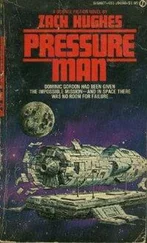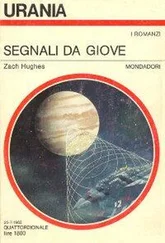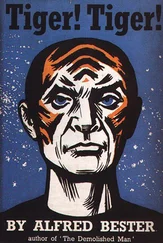Zach Hughes - Tiger in the Stars
Здесь есть возможность читать онлайн «Zach Hughes - Tiger in the Stars» весь текст электронной книги совершенно бесплатно (целиком полную версию без сокращений). В некоторых случаях можно слушать аудио, скачать через торрент в формате fb2 и присутствует краткое содержание. Жанр: Фэнтези, на английском языке. Описание произведения, (предисловие) а так же отзывы посетителей доступны на портале библиотеки ЛибКат.
- Название:Tiger in the Stars
- Автор:
- Жанр:
- Год:неизвестен
- ISBN:нет данных
- Рейтинг книги:3 / 5. Голосов: 1
-
Избранное:Добавить в избранное
- Отзывы:
-
Ваша оценка:
- 60
- 1
- 2
- 3
- 4
- 5
Tiger in the Stars: краткое содержание, описание и аннотация
Предлагаем к чтению аннотацию, описание, краткое содержание или предисловие (зависит от того, что написал сам автор книги «Tiger in the Stars»). Если вы не нашли необходимую информацию о книге — напишите в комментариях, мы постараемся отыскать её.
Tiger in the Stars — читать онлайн бесплатно полную книгу (весь текст) целиком
Ниже представлен текст книги, разбитый по страницам. Система сохранения места последней прочитанной страницы, позволяет с удобством читать онлайн бесплатно книгу «Tiger in the Stars», без необходимости каждый раз заново искать на чём Вы остановились. Поставьте закладку, и сможете в любой момент перейти на страницу, на которой закончили чтение.
Интервал:
Закладка:
just in time for scheduled lift-off. The first cargo. Laser-quality rubies. The long months between Earth and the Centauri stars. The loneliness of it. The companionship of only one man and months in space with an old, lovely ship doing her best to fall apart, keeping them both busy with maintenance. He could see the Earth, blue and beautiful from near space; the moon, sere and sterile with its labs and pads and stations. The components of his own sun, its physical characteristics, recognizable from light-years away with ship instruments. He sent his eyes searching inward. Endless time stretched ahead of him. He could sense that. No need to hurry. There was time to know himself. He was John Plank. 52 years old, a bit short by modern standards at 178 centimeters, trim, not unhandsome. He had space-grayed hair, dark eyes and agile hands. And he was missing. No hair, no hands, no legs, no lungs. His heart was a machine containing powerful magnetic and electrical fields and his nervous system was a complex of circuits covering every meter of a ship that astounded him with its perfection. Down in the cargo hold was a small runabout. He was linked to it by radio and he sent it moving, easing outward through a smoothly functioning air lock. Via the drifting runabout, he could look back to see the gleaming reflection of the red sun on the hull. He lighted himself. From the runabout, he saw himself glowing in the darkness of space, nearly spherical, skin made of an alloy unfamiliar to him, ports brighter, weapon pods protruding. He moved the runabout, seeing from all angles. On the bow, near the large port, the words, in English—Plank's Pride. He directed the return of the small vehicle and left it to tuck itself away as he traced circuits. His interest was caught by the weapons. Deadly. Power beamed to incredible distances and capable of cutting through a hull with one touch. And hidden away inside the pods the sleek and fatal missiles, planet killers. Compacted nuclear heads with the potential to
split an Earth-sized planet at the equator, shatter it into fragmented, torn pieces. He investigated the navigational equipment. The 16-meter eyes were part of it, along with the integrated and complicated star charts and a system of detection gear that could spot space debris the size of a pebble at incredible distances. The memory bank of the computer contained familiar material, the
library of the old Pride intact, film, books, records. He seized upon it and traced the history of the Pride from its log. The first trip complete. The second trip outward bound. Names and distances. Earth to Centauri. Times and speeds and fuel consumption. His mind raced. He had records of Earth, the solar system, the nearby stars whose planets were being colonized and mined by people from Earth ships. He had a ship so capable of travel that the travels of the Earth starships seemed like local traffic. Finding home, then, should be simple. Except that all references to exact location of the Sol-Centauri neighborhood were missing. Except that, assuming Sol and Centauri to be located in the Orion Arm, there were millions of stars in that arm alone. The why of it puzzled him as much as the how. He knew, could accept it now, that he was no longer John Plank, man of Earth. He was Plank, starship. He contained advances that could not have been of Earth. How? He did not know. Why? Why could he not remember how to go home?
Why was his brain, a tiny, soft, living entity buried behind shielding at the
center of his metallic body, so devoid of any clue as to the location of his home planet? He searched his brain for signs of alteration. As far as he could tell he was complete, all his memories intact. He searched himself for clues; then she hit him with a force that moved him inward, lost him in pain. Laughing, dressed in white swimwear, skin golden, hair long, tousled and light as the sands of the deserts of Earth. «Sahara,» he said. She was younger than he was, but mature. He had met her at the academy. «Call me Hara,» she had said at their first meeting. He called her Hara, and later, he called her love. He considered giving
up his private enterprise plans to join her in the Service. He begged her to join him aboard the Pride, dreaming of the long, lovely months with her.
But, by then she was first navigation officer on a fleet colonizer, proud of her achievement, impossibly lovely in uniform and utterly dedicated to her job. «Soon,» she'd told him when he'd last seen her, after his first successful venture into space. «We have time, John. We have lots of time.» Now she was light-years away in an unknown direction, lost to him
forever, for he himself was lost, altered, no longer a man, merely a mass of gray, spongy cells nestled in the bulk of a fantastic starship. He felt a vast and white-hot anger. He luxuriated in it, growling into the ship's sound system with it, yelling his hate for whoever or whatever had done this thing to him. The sensors brought him away from his lovely hate and anger and showed him the planet, blue with life-giving water that was green underneath, a belt of clouds over a wide ocean. There, perhaps, lay the answer. He unshipped the small runabout and powered it down toward the surface of the planet. He used the hours of approach to make distant readings: he found Earth-type atmosphere, a stable system of weather, gravity just under Earth-normal, size just smaller than Earth, all the favorable conditions of a life-zone planet. Although the ship's atomic clocks kept Earth time, time had no meaning to him. He used it to best advantage without being aware of its passing. When the scout entered atmosphere and its sensitive sensors confirmed his readings regarding oxygen content and minor element makeup, he merely went ahead with the task at hand, seeing through the eyes of the scout. There were four major land masses, balanced against the planet's spin atop the fluid core. A relatively quick fly-around showed temperate, tropical and arctic zones, the usual makeup of a life-zone planet. Vegetation followed the usual pattern formed by the spin-induced weather systems. There were no artificial emanations from the surface. Subsurface masses of radioactive ores made their presence known, deposits typical of Earth-type planets. There was no sign of intelligent life. At slower speeds and lower altitudes, the scout made calibrated grids of the landmasses. Plank saw huge, green forests and open grasslands, mountains and streams, lakes and seas. There was life on each of the landmasses, confined largely to tropical and subtropical areas. That was normal. Armstrong, the one Earth-type planet of the Centauri system, had several species of rodentlike animals, varied vegetation, marine life of a more complex nature. Satisfied that no advanced life was present. Plank dipped the scout to land, examined the predominant life form close up. In the inhabited areas,
Читать дальшеИнтервал:
Закладка:
Похожие книги на «Tiger in the Stars»
Представляем Вашему вниманию похожие книги на «Tiger in the Stars» списком для выбора. Мы отобрали схожую по названию и смыслу литературу в надежде предоставить читателям больше вариантов отыскать новые, интересные, ещё непрочитанные произведения.
Обсуждение, отзывы о книге «Tiger in the Stars» и просто собственные мнения читателей. Оставьте ваши комментарии, напишите, что Вы думаете о произведении, его смысле или главных героях. Укажите что конкретно понравилось, а что нет, и почему Вы так считаете.




